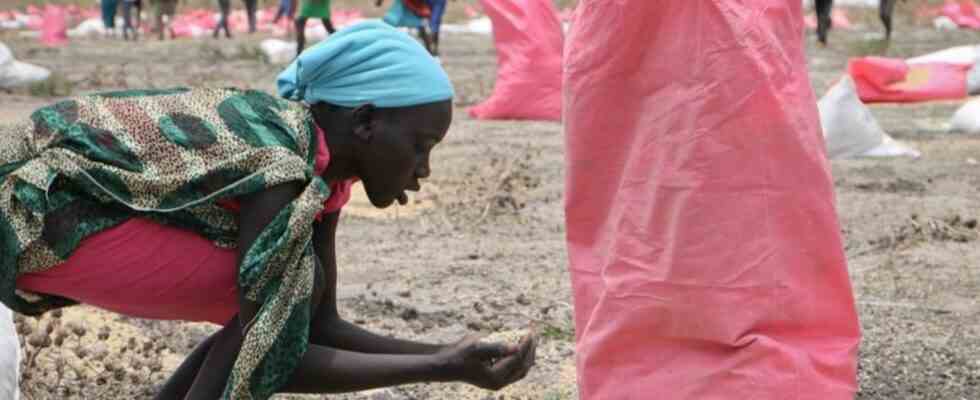human rights
UNICEF: Significantly more young women malnourished
A woman picks up millet from the ground in sacks dropped by the United Nations World Food Program (WFP) over Kandak, South Sudan. photo
© Sam Mednick/AP/dpa
A new report by the children’s charity gives cause for concern: there is a lack of food in many countries. Women and girls are particularly affected – their situation will probably continue to deteriorate.
In crisis countries, the number of acutely malnourished young women has risen sharply in recent years. This emerges from a report published by the children’s charity Unicef on International Women’s Day on March 8th. According to this, in the twelve countries most affected by the global food and nutrition crisis, 6.9 million women and girls are acutely malnourished in their youth – in 2020 it was 5.5 million.
The number of acutely malnourished expectant and breastfeeding mothers has increased by 25 percent since 2020.
The twelve countries are Afghanistan, Burkina Faso, Chad, Ethiopia, Kenya, Mali, Niger, Nigeria, Somalia, South Sudan, Sudan and Yemen. According to Unicef, they form the epicenter of a global food crisis, which was exacerbated by the war in Ukraine and persistent droughts, conflicts and instability in some countries.
Devastating Effects
According to the report, more than a billion adolescent girls and women worldwide suffer from malnutrition, including underweight and stunted growth, micronutrient deficiencies and anemia (low blood count). Adolescent girls and women in South Asia and sub-Saharan Africa have been hit hardest by the food crisis.
This has devastating consequences for their health and life. Their immune system is weakened and their cognitive development is impaired. They are at an increased risk of life-threatening complications, for example during pregnancy and childbirth.
The Unicef report “Malnourished and Overlooked: The Global Food Crisis of Adolescent Girls and Women” warns that the situation in this area will continue to deteriorate. “If the international community does not act now, the consequences could last for generations,” warned Unicef Executive Director Catherine Russell.

